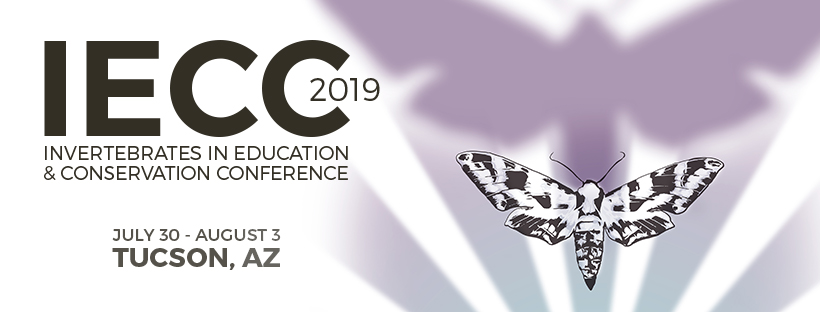
2019 Poster Session Presenters
Katie and Michael Genovesi - Eckerd College and Hopewell Central High School
This poster will introduce Espen Stoknesís five psychological barriers to climate action (called the 5 Dís for short hand) that must be addressed to have effective climate change communication. We will examine these five barriers through the lens of the worldwide decline in invertebrates. We discuss how we might use the research on climate change communication to increase awareness and action around this critical issue. A small pilot project involving high school students is highlighted.
Louise I. Lynch-O'Brien - University of Nebraska-Lincoln
These programs provide researchers with access to data on expanded geographic and temporal scales and provide the public with an experiential learning opportunity. This grounded theory study explored the science experiences of adult citizen scientists in a bumble bee conservation project. We present a theory of transference: the social process by which educational and attitudinal impacts intended by program leaders for program participants are filtered by citizen scientists and transferred to others.
Nathan Brockman - Reiman Gardens
New Guinea Walking Sticks (Eurycantha calcarata) are voracious eaters. When host plants are in season it is easy to go out into the surrounding environment to find and gather food. To maintain a colony, as the plants outside degrade or become unavailable, alternative food sources are required. This is usually by shipping in regular orders of host plants or maintaining a large number of potted plants in a greenhouse. What if there was a way to bank food during the regular growing season and increase diversity in their diet during times when only limited variety is available.
Kristin Rodenburg - Omaha's Henry Doorly Zoo ans Aquarium
We will be doing a poster presentation focusing on the Salt Creek tiger beetle conservation project. The poster will include general information about the breeding and husbandry of the critically endangered Salt Creek tiger beetle as well as updates on overall progress and steps moving forward.
Meera Lee Sethi - University of Washington and The Pacific Science Center
At the Pacific Science Center in Seattle, visitors can participate in a brief hands-on interaction with live Madagascar hissing cockroaches. An experimental study showed that even an engagement of 5 minutes or less could result in significantly improvements in visitorsí comfort level with and interest in invertebrates. Also, having interpretive staff open conversations using an ecological framework (e.g. discussing the role of these animals as decomposers in their native habitat) rather than a physiological one (e.g. discussing how they make their characteristic hiss) resulted in a small but significant increase in how much visitors supported the conservation value of invertebrates.
For information on presenting a poster please contact TITAG here.